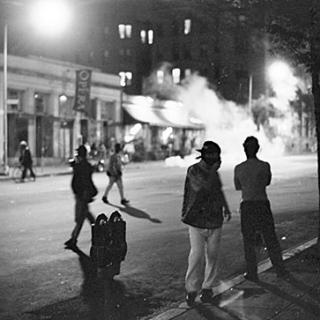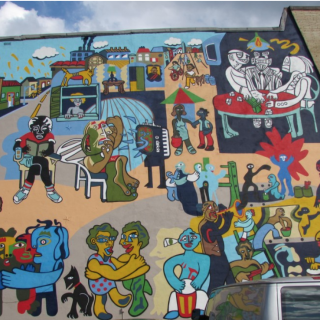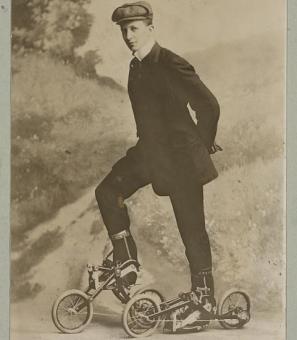From Bolivia to Arlington
One of the big projects going on at WETA of late is the new LATINO AMERICANS documentary that premiered last night. (Missed it on WETA TV 26 and WETA HD? Check out the first installment on pbs.org.) The doc mixes historical and personal accounts to illustrate the experience of what is now the largest minority group in the U.S.
Inspired by the film, we decided to seek out a local perspective on the Latino experience in our community. With the help of the good folks at the Arlington Historical Society, I got in touch with Luis Araya, who is a Bureau Chief in the Arlington County Department of Environmental Services (public works). He immigrated to Arlington from Bolivia as a young boy in 1966, when very few Latinos lived in the county. He's worked for the county government for 40 years and he also happens to be a Director at the Historical Society. So he brings an interesting perspective on the experience of Latinos in Arlington over time. On top of all that, he's one of the most accomodating people I've ever met -- offering up not only his insights but also his family photos for our local video project.
Luis's story is both unique and representative of the experiences of many Latinos at the same time. I was struck with the deep emotions he described -- excitement at coming to the U.S., desire to assimilate as quickly as possible, difficulties with being viewed as different, etc. The Arlington County that Luis came to in the '60s had a very different fabric than the Arlington County of today. According to Luis, the big immigration boom coincided with the construction boom of the 1970s and 1980s. During that period, Arlington became decidedly more urban and Latinos came to be a labor force to develop the business corridors in Rosslyn, Ballston, Crystal City, etc.
According to Luis, this produced an interesting relationship with the African American community, which had traditionally filled many blue collar jobs in Arlington. There was some tension but, at the same time, there was a mutual understanding between the groups.
"When I graduated from high school in June of 1973, I was a hippie looking for work before I went off to college.... and one of the things in my Americanization was to work construction like all the other guys in high school who wanted to be big, beefy kids and all that. When I walked on the job the first day on the crew, I was the only non-African American kid on that crew and they were looking at me like, 'Well, you're not white... You're slightly brown,' because I had a tan back then and they wondered what I was. So, they said, 'You're okay.' They welcomed me and said, 'You can be one of us.' And, what I found interesting was the African American community made me like an honorary brother at the time. And I embraced them right away because I got to hear their story -- how they lived in segregated Arlington all those years and built this infrastructure, and now it was our turn."
Certainly this topic is worthy of a more extended exploration. Indeed, there are probably entire books or PhD theses that could be written about the relationship between minority groups in American society, but it's interesting to learn a little about how that dynamic played out locally. Thanks for the insights, Luis!





![Sketch of the mythical fuan by Pearson Scott Foresman. [Source: Wikipedia]](/sites/default/files/styles/crop_320x320/public/2023-10/Goatman_Wikipedia_Faun_2_%28PSF%29.png?h=64a074ff&itok=C9Qh-PE1)











